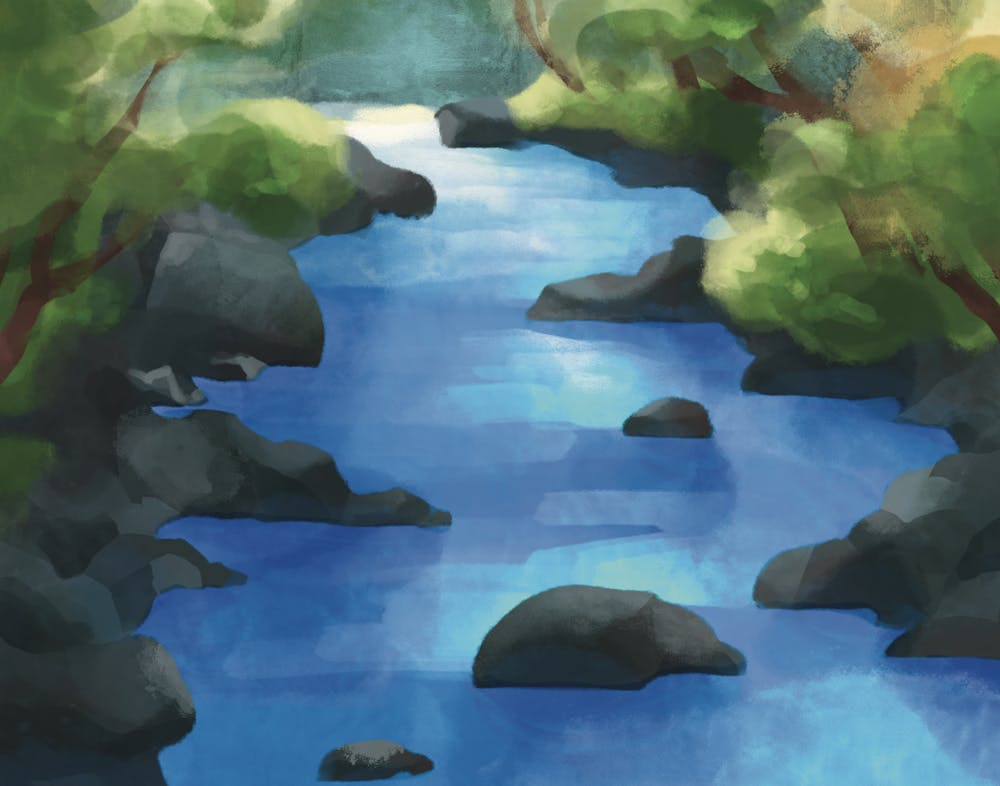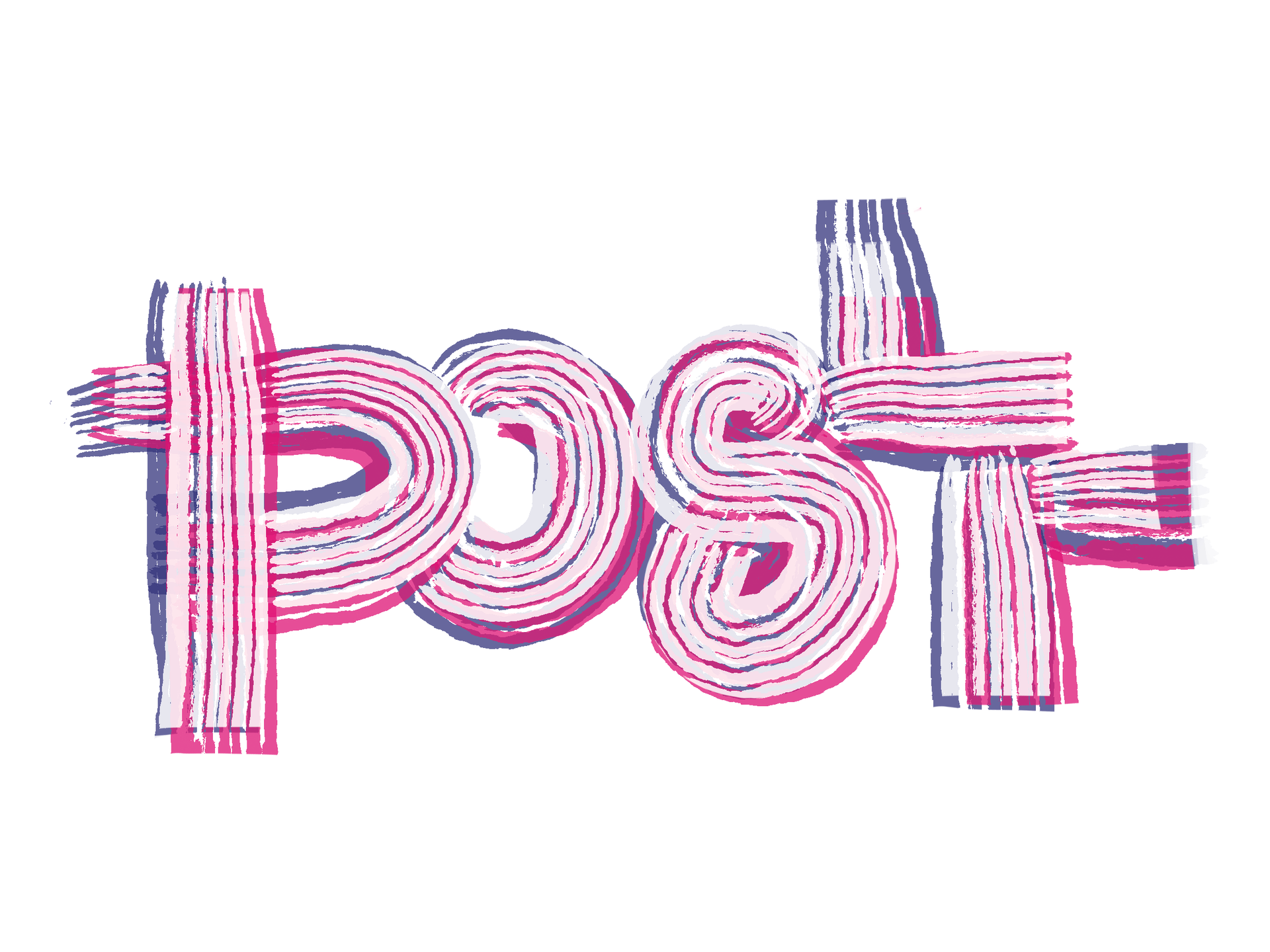The tiny European car parked outside the window of Babu’s cafe in Zürich has a few droplets of water on the rear windshield. The people come and go around me, on and off like the intermittent rain. They move, and I sit. A few of them are coming into the cafe, maybe even to sit by the window with me. Regardless, they’re on the move. Me? I have nowhere to be. I could stay here all day if they’d let me. I’m merely existing, completely untethered to anybody or anything in this city. It’s exhilarating and terrifying. And lonely. It’s the perfect amount of rain for forming those disconcertingly large rain droplets that stick to the empty tables and chairs outside but never coalesce.
I wonder how many people think that water is blue. I wonder why I can’t not think that water is blue, despite the fact that I know it absorbs color from elsewhere. Do we all do that? Start with a blank slate, colorless, and construct an identity from there?
My electric kettle has a blue light on the bottom to convince me that the rolling boil it produces is neon blue as opposed to the unappealing colorlessness reflected by the outer surface of the gray machine.
Meditation tells us to imagine a river flowing endlessly. Close your eyes, imagine this river running over pebbles, stones, boulders, again and again and again. These obstructions are intrusive thoughts, preventing you from experiencing the freedom of the constant meandering of the river. While it’s moving along forever—its permanence is terrifying for some—we should take comfort in the fact that the river’s movement tells us that whatever’s contained in those rocks between us and peaceful surrender is something fleeting. So I close my eyes: breathe in for four counts, hold for four counts, breathe out for four counts, and hold again for four counts. And I try to be the endless river that I can visualize so clearly. And I try not to dwell on the stones turning into rocks turning into boulders.
Back in Zürich, I somehow find myself surrounded by empty fish tanks. Shouldn't there be water here, too?
I jump in the water to wake my body up. “To reset your amygdala,” my friend puts it—which could be pseudoscience for all I know. Either way, I need it. I need the shock, the reminder that I’m here. At night, the water is formidable, the rolling boil replaced by a dark emptiness. For a moment, my body freezes. It’s December, late at night, and the warmth of the summer has long been forgotten by these waves.
When the water stopped running we’d take a bath in the Layou River. Soon it became more than a necessity born out of the pure terror of standing in a shower, shampoo in your hair, and hearing the faucet start to cough—it became a ritual. I remember throwing rocks into the shallow water, watching them travel as they sank, stumbling a bit along the way. We brought a speaker to listen to Raveena, and only once did we lose a travel-sized shampoo bottle to the rapids. Washing away the dirt that coated our bodies, we floated in the sun and forgot that there could be anything else.
Now the water is completely black, all the more frightening in the dark. I’ve seen water of every color: the murky greenish brown of the Mississippi River in St. Louis, the blinding turquoise of Zanzibar, the navy blue of Gloucester Beach, and the “true” blue of Lake Arrowhead. But this water isn’t welcoming. Instead, it’s unpredictable, violent, reveals nothing of its interior. This water is the darkest black I know, all the more intimidating because of that which it obscures. I need to convince myself that the stars above me are the only things separating this water from those greenish, turquoise, navy, and true blues.
Is it only loneliness, or boredom, or lack of cell service abroad, that allows me to take a closer look at my surroundings, myself?
Sometimes I feel like the rocks from the meditation exercise. Like the rocks, trying to be the river. Everything flowing around, gliding past me. The water grazes past me, gets me a bit wet, but, at least for the near future, leaves me relatively unchanged. If anything, my cultural and linguistic cluelessness leaves me feeling like a roadblock (riverblock) to the people who strike me as belonging to this place. But maybe they’re all just too tall and too blonde.
Standing in the Zürich Kunsthaus art museum, I notice that the French painter André Derain painted his water differently. Short, severe brush strokes characterize his depiction of the Boats in the Port of Collioure. The imprints more closely together in the sky, the sand, and the boats than in the ocean. To create a sense of movement and the reflection of the sky above, Derain left a blank canvas between the harsh blue of the waters. The water in the painting is defined by both presence and absence.
Writing about water is like writing “one long sentence”—it just goes on and on and on and on and on without needing to rest or catch its breath from the constant movement, which might be due to the fact that, despite its endless adaptation, water’s particular particles are not concerned with where they’re going—they seem content to explore their various forms with minimal interruption: the realms of vast bodies like lakes and oceans, of puddles, of sewer systems, of clouds, of their sometimes seemingly endless confinement in various containers, of falling and rising, rising to the sky and falling to the Earth, which seems to me like a strikingly adventurous lifestyle, and I wonder how much of this is welcome; do they yearn for a life of permanence?

ADVERTISEMENT
ADVERTISEMENT
More from Post- Magazine




